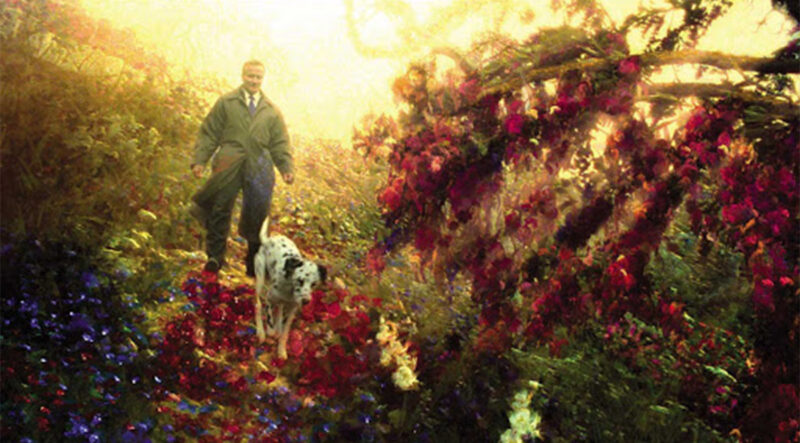Ever since I wrote the feature on past life regression in Canada, my mind has been thinking about what comes next.
And maybe the pandemic is creating a minor existential crisis for all of us because a virus is threatening our very way of life and claiming a lot of people in the process.
I may be a professed apatheist — a person who does not believe or disbelieve in God, and frankly does not care — but that doesn’t mean I don’t have a spiritual side.
For me, it’s always been about the natural world, and how science has described its basic functions. However, no one knows what happens when we finally dive into the afterlife.
Throughout my life, I’ve had interests crop up that were inexplicable. Perhaps there were subtle nudges that nestled deep into my subconscious, but these pursuits do lend themselves to theories of reincarnation.
My deep interest in Viking archaeology. My attraction to the Romantic period poets. My fascination with the Three Kingdoms Period of China. Being obsessed with the Golden Age of Hollywood and shirking my own generation’s music (while I was a teen in the Grunge era) in favour of progressive rock from the 1970s.
Fair point, my parents’ music did factor in greatly in my only-child upbringing. But I think there’s more to it than that. We’re far too complicated of a species to have such energy snuffed out with our last firing ion.
In the Western world, reincarnation is pooh-poohed on. Christianity has not been very accepting of the idea because there’s no punishment. Judeo-Christian beliefs like the idea of one suffering in the afterlife for the sins they committed in the corporeal world.
Richard Matheson’s What Dreams May Come has been my benchmark for what happens after we meet our proverbial Waterloos.
The finality of the Christian belief really doesn’t make sense. In Tibetan Buddhism, Bardo is the in-between state between death and life. So, there’s that underlying belief in reincarnation. That Buddhist philosophy has always been most intriguing to me. It’s also one that mirrors the Matrix theory of life.
I’m not one for organized religion. There’s very little tolerance for anyone outside of the sect. An old friend, who was born-again Baptist looked down on Catholicism, and this negativity cemented my view of organized religion, particularly Christian. I mean, they all believe in the same Judeo-Christian guy. Why quibble over semantics?
One particular bumper sticker that sums up my feelings of organized religion: “I’ve got nothing against God. It’s his fan club I can’t stand.”
As we struggle to wrap our brains around the pandemic — deal with self-isolation and try to keep our sanity while trying to home school our children — it’s those calm moments in between where we fall into our thoughts of the afterlife.
Perhaps it’s the fear of that final unknown that keeps us moving forward.
Photo courtesy of Universal Pictures

